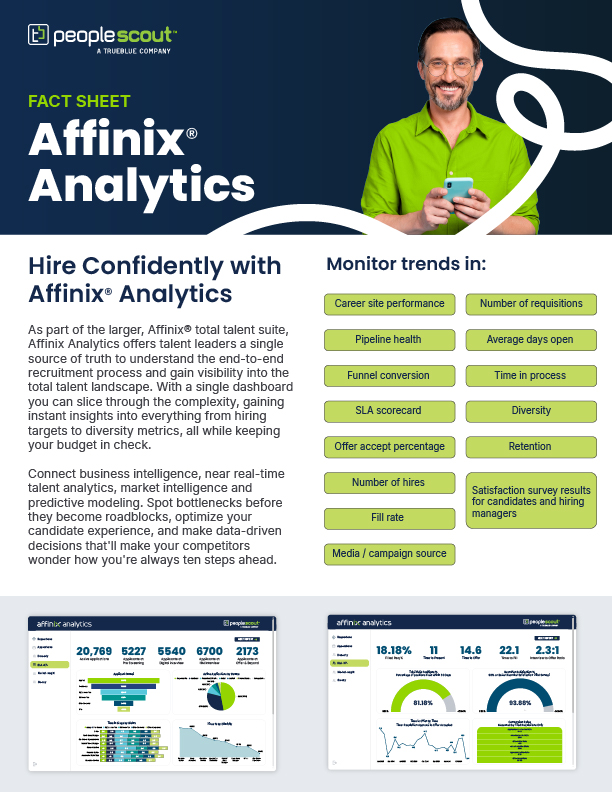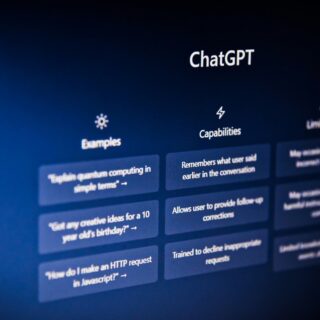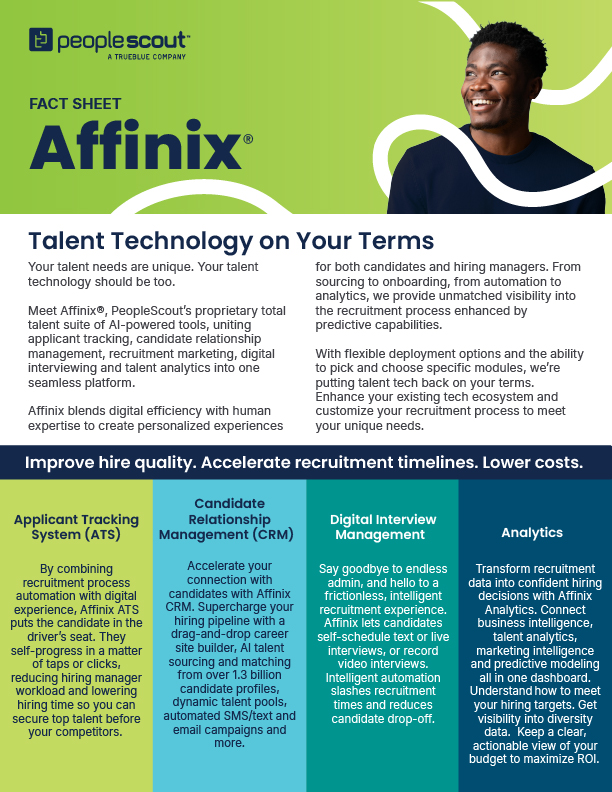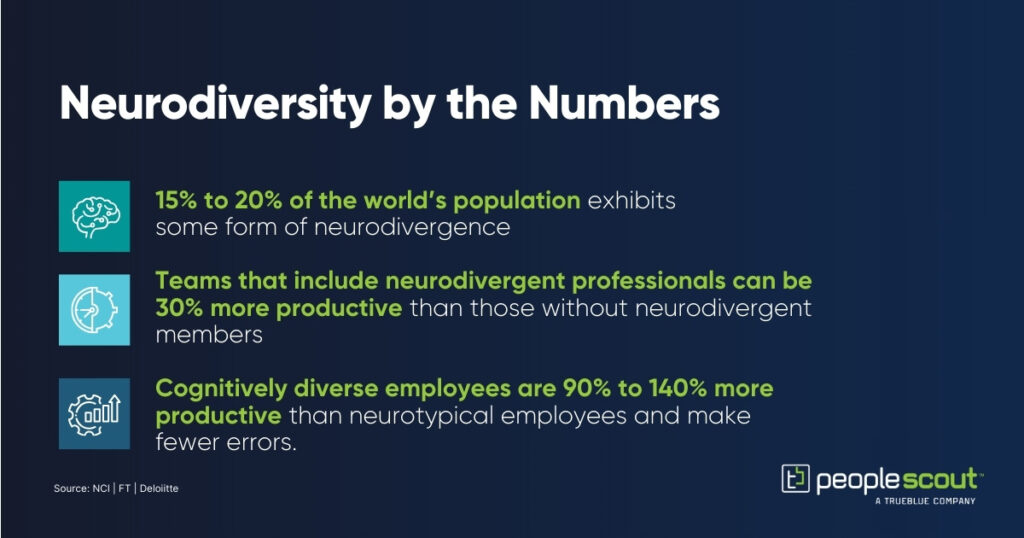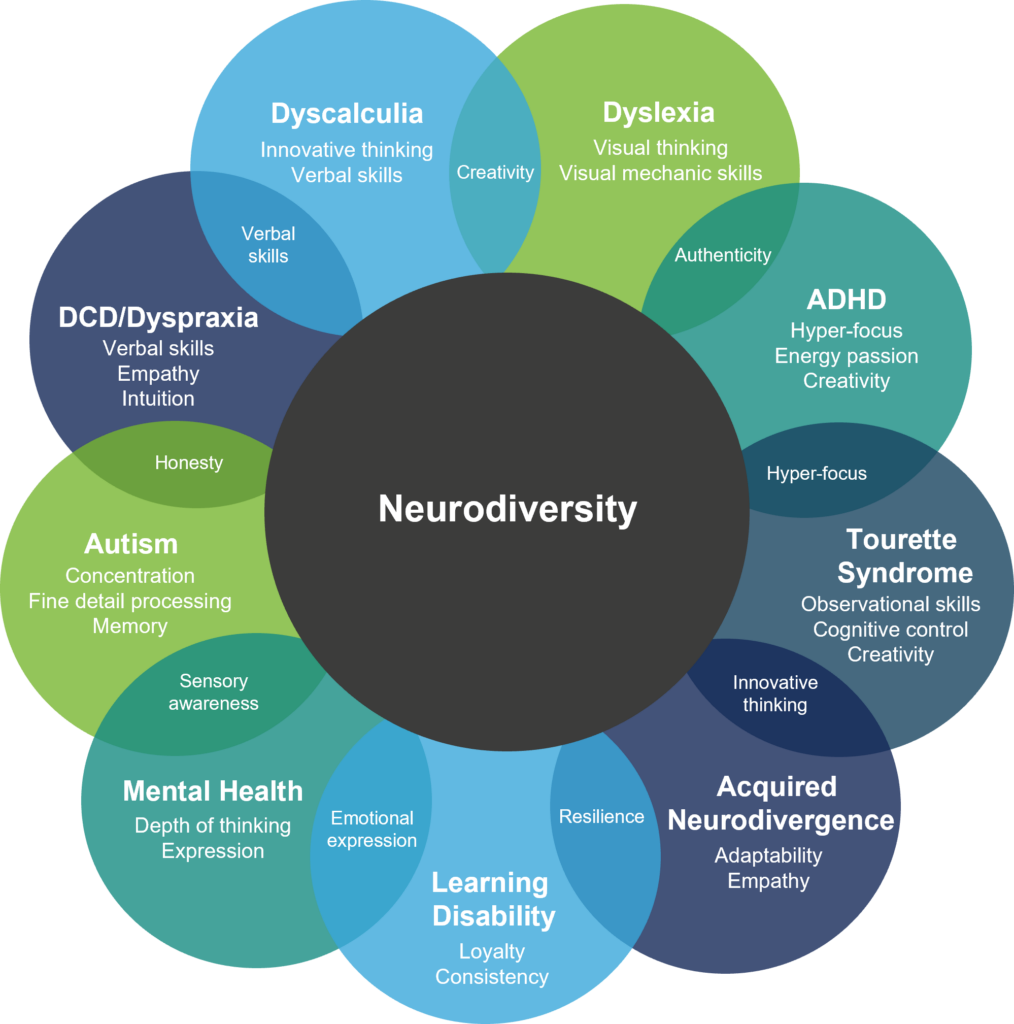At the start of 2024, we highlighted eight key areas that would impact how companies attract, retain and develop talent. As the year comes to a close, we’re revisiting these critical topics to examine what transpired in the talent landscape and explore what may be on the horizon for 2025.
This year brought a complex mix of challenges and opportunities for HR leaders. Economic uncertainty forced many to re-evaluate talent acquisition strategies, with approaches like modular talent solutions and direct sourcing gaining traction. The ongoing skills gap, intensified by business transformation and the rise of new technologies like AI, highlighted the need for upskilling, reskilling and proactive talent pipelining. Meanwhile, employees continued to reevaluate their relationship with work, demanding greater flexibility, wellbeing support and personalized experiences. Navigating these shifts required HR leaders to become more agile, data-driven and employee-centric, often relying on technology to streamline processes, enhance the candidate experience and gain valuable talent market intelligence.
In the following review, we trace how our 2024 predictions played out and offer insights for the path ahead.
1. New Models Help Organizations Ride the Economic Waves
What We Said:
Talent acquisition teams have experienced significant fluctuations over the past few years—from pandemic-driven downsizing to rapid growth and recent cutbacks—making it critical for talent acquisition leaders to develop strategies for managing through economic uncertainty. Rather than continuing the cycle of boom and bust, organizations should adopt agile approaches to workforce planning, with flexible RPO solutions offering stability during unpredictable times.
What We Saw:
Market conditions shifted the recruitment landscape to favor employers in 2024. Year-over-year hiring rates are stabilizing, with a moderation in the hiring slowdown, especially in the tech industry. While hiring rates across many industries were down, healthcare and energy sectors saw continued strength despite the general economic downturn. With continued labor shortages, shifting skills requirements and changing employee expectations, immense pressure remains on employers and their talent strategies.
Modular talent solutions are gaining traction as a strategic response to economic uncertainty, providing a flexible approach to workforce management that allows employers to adapt to fluctuating demand and optimize costs. As 91% of hiring managers say they’re experiencing hiring challenges, and 45% indicate they’re struggling to find qualified workers for open roles, Modular RPO (recruitment process outsourcing) has proven to be a cost-effective strategy for augmenting internal recruitment capabilities.
Employers also turned to direct sourcing as a key strategy for tackling staffing shortages. According to Everest Group, 46% of enterprises are actively exploring ways to combine approaches for contingent and permanent talent acquisition management, and 74% see direct sourcing as the best strategy for doing so. By building a talent pool of qualified candidates—including independent contractors, freelancers and other contingent workers—companies can hire faster, reduce costs and fill specific skills gaps within their organization. Leveraging contingent labor helps organizations gain the flexibility and scalability necessary in today’s dynamic market.
As you consider implementing direct sourcing in your organization, remember that technology is a crucial enabler, and the human touch remains invaluable. Partnering with an RPO provider can provide you with AI-powered, cutting-edge technology, backed by expert talent curation and engagement strategies.
2. Focus on Internal Mobility
What We Said:
Employee retention will remain a top priority for HR professionals in 2024, with 36% identifying it as crucial, leading to an increased focus on internal mobility and skill development. Following the labor hoarding trend of 2023, organizations are emphasizing the transformation of existing workers’ skills to prepare for future needs. Career paths are becoming more fluid, moving away from traditional linear progression to cross-departmental moves, which requires hiring managers to evaluate candidates based on their overall organizational value rather than just role-specific fit.
What We Saw:
Internal mobility is on the rise as hiring rates stabilize. According to LinkedIn, internal mobility has increased 6% year-over-year as companies discover how leveraging internal hiring can accelerate organizational agility, employee engagement and retention, and career development. According to LinkedIn’s 2024 Workplace Learning Report, 41% of companies plan to fill more than 30% of their open roles with internal talent. Internal mobility does more than help employers fill critical gaps—93% of employees stay at a company longer if it invested in their career development, and internal hires reach competency 20% faster than external hires.
Internal mobility programs are more successful when combined with upskilling and reskilling initiatives. As business needs evolve, internal mobility allows employees to move into new roles, and upskilling and reskilling provide the necessary training to close skills gaps and ensure employees are successful in their new roles. By offering these development opportunities, employers expand the pool of qualified internal candidates while boosting employee engagement.
By effectively integrating upskilling and reskilling with internal mobility programs, companies can create a more engaged, agile and resilient workforce, helping them overcome current and future hiring challenges in a dynamic business environment. An RPO partner can help create a robust internal mobility program that leverages best practices to support continuous learning, career growth and workforce planning to retain top talent and swiftly adapt to changing business needs.
3. AI Becomes a Reality…Slowly
What We Said:
While talent acquisition continues to evolve with the growth of new technologies like Generative AI (GenAI)—particularly in streamlining tasks from screening to interview scheduling—organizations are advised to take a measured, principled approach to AI implementation. The key is to start with small projects to identify where AI can add genuine value while maintaining human oversight—which remains central to recruitment processes.
What We Saw:
Following the widespread discussion tools like ChatGPT, we thought we’d see organizations move beyond ethical debates to actively integrate GenAI into their talent acquisition strategies. Indeed, eight in 10 global executives see at least one way GenAI will help their employees, yet only one in 10 organizations have “broad leadership alignment, comprehensive tools and strong processes in place for GenAI adoption.”
While adoption rates vary, AI is transforming talent acquisition. We’ve seen increased use of AI tools for résumé screening and initial candidate assessment, driving recruiter efficiencies, reducing potential unconscious bias and improving quality of hire. Natural language processing tools can ingest thousands of résumés and CVs, and analyze the content, context and trends across the talent pool within seconds. AI tools can be trained to recognize specific skills, experiences and competencies that are required for open roles and then score and rank applicants automatically.
Some employers have integrated AI-powered chatbots into their recruitment process to create a conversational experience for candidates using natural language processing, offering candidates support 24/7. These mobile-friendly, text interview tools automatically screen candidates using predetermined questions that gauge their interest and qualifications. Based on the responses, the chatbot can instantly determine the next step for each specific candidate. This frees up recruiters to focus on more strategic tasks.
Adoption of AI-powered skills assessment platforms has also increased, providing an objective and accurate evaluation of candidates’ abilities through data-driven insights. New tech platforms test and measure candidates for skills mastery, personality traits and cognitive abilities. As with all AI-powered efficiencies, the tech-enabled assessments should augment, not replace human expertise.
Partnering with an RPO provider is an excellent way to ensure careful, diligent and compliant use of AI tools throughout your recruitment process. Above all, AI should not be seen as a replacement for the talent acquisition strategy you’ve already built, but rather a set of tools to make your teams better at tasks both mundane and meaningful.
4. Business Transformation Impacts Workforce Planning
What We Said:
The demand for new types of jobs, particularly in areas like data analytics, software development and green skills (which saw a 677% increase from 2019 to 2023), has grown significantly, with McKinsey noting that one-third of new U.S. jobs created in the past 25 years were previously non-existent roles. While this transformation creates exciting opportunities, organizations face a critical challenge as workforce development systems struggle to keep pace with rapidly changing skill requirements, resulting in a shortage of qualified talent. To address this gap, talent acquisition leaders must focus on proactive workforce planning and employee development.
What We Saw:
The demand for tech talent, particularly in areas like AI, machine learning, cybersecurity and software development continued to outpace supply in 2024. The transition to sustainable practices and renewable energy sources also fuelled growth of green jobs in areas like environmental engineering, sustainable agriculture and renewable energy technologies. Across industries, the ability to collect, analyze and interpret data became critical for decision-making, leading to higher demand for data analysts, scientists and engineers.
The World Economic Forum predicts that 23% of global jobs will change in the next five years due to industry transformation, including AI. According to LinkedIn, employees skilled at using GAI are 5x more likely than others to develop skills like creative ideation, design thinking and emotional intelligence. So, with 79% of CEOs accelerating their post-crisis business strategy, the pressure is on HR leaders to achieve the vision of a tech savvy workforce.
HR leaders must take an active approach in the C-Suite to achieve strategic business outcomes with an edge in human capital by assessing the current state of the workforce and developing a roadmap for optimizing employee value and identifying hidden potential to close skills gaps. Yet, according to Gartner, while 87% of HR leaders agree that shifting business needs requires continuous HR transformation, only 28% say that the HR strategic planning process is fully integrated with the business planning process.
Collaboration between the C-Suite and HR is essential for successful talent acquisition in today’s dynamic business environment. HR must be deeply involved in business discussions to understand the organization’s goals to anticipate future needs, identify potential skills gaps and develop proactive strategies to attract and grow the right talent.
5. Growth in Skills-Based Practices
What We Said:
Organizations are adopting a comprehensive approach to workforce adaptation by investing in upskilling programs and partnering with RPO providers to secure talent with future-proof skills. The trend is moving towards skills-based recruitment, with companies like Google leading the way by eliminating degree requirements, which not only expands candidate pools but also promotes workplace diversity and inclusion. Companies are shifting their assessment practices to focus on actual skills rather than traditional credentials, recognizing this as a more effective way to identify qualified candidates in today’s evolving job market.
What We Saw:
In adapting to the changing skills landscape, employers are rightly focusing on specific skills rather than traditional credentials and talent leaders are increasingly recognizing the value of experience and learnability over degrees. Alternative credentials like certifications, badges, micro-credentials and other qualifications earned outside of traditional degree programs are also gaining acceptance, as they often focus on specific skills or knowledge areas, a natural fit for skills-based hiring strategies. Recognizing these credentials helps employers expand their talent pools, hire faster and improve quality of hire.
Recent estimates of the impact of large language models (LLMs) by the International Labour Organization estimate that 24% of clerical tasks should be considered highly exposed to automation effects with an additional 58% having medium-level exposure, while another report suggests that 80% of U.S. workers could see at least 10% of their tasks automated. The International Monetary Fund estimates that AI would affect 40% of jobs and worsen inequality, while Goldman Sachs predicts that up to 25% of the work currently done by humans could soon be automated by generative AI.
As AI increasingly takes on the less complex, more repeatable tasks being done by the workforce, companies will need to hire talent with broader, uniquely human skills. Skills like problem-solving, adaptability, and collaboration—all skills that spur organizational agility—will continue to rise in demand. In fact, 69% of U.S. executives say they plan to prioritize hiring candidates with soft skills, especially transferrable skills that will allow candidates to move nimbly across roles.
While making the shift to skills-based hiring practices takes time and effort, an RPO provider can accelerate your transition by offering strategic guidance around talent assessment design to embed skills at the core of your talent practice and build a future-fit workforce.
6. Stalled Momentum in HR Tech Upgrades
What We Said:
As the HR technology market grows ever bigger, 2024 is set to be a pivotal year for recruitment technology upgrades, with organizations increasingly leveraging AI-powered features to automate routine tasks and enhance the candidate experience. Talent acquisition leaders are focusing on using technology to augment human interactions and analyze data for more agile resource management, while simultaneously proving their ability to deliver digital transformation and demonstrate clear ROI on these investments. This push towards technological advancement presents an opportunity for TA leaders to dispel past criticisms about HR’s ability to drive meaningful technological change.
What We Saw:
Economic uncertainty impacted our predictions for HR tech upgrades in 2024. While the drive for technological advancements in HR remained strong, budgetary constraints and cautious spending impacted the pace of adoption. According to Gartner, when asked about priorities and expected challenges in 2025, 55% of HR leaders say their current technology solutions do not cover current and future business needs. HR leaders are increasingly seeking tools to gather and analyze data to inform their talent strategies and enhance the candidate experience. Uncertainty about the economic outlook led some companies to postpone major HR tech implementation, opting for smaller-scale upgrades or maximizing the value of existing systems.
The shift to cloud-based HR systems continued, offering scalability and flexibility despite budget constraints. Companies also focused on integrating their existing HR systems to improve data flow and drive efficiencies. Under budget scrutiny, a greater emphasis was placed on demonstrated ROI of HR tech solutions.
A Gartner survey identified HR technology as the top priority for HR investment for three consecutive years. So, while economic challenges may persist, there’s reason to be optimistic that HR tech investments will increase in 2025 as companies recognize the long-term benefits of building the ultimate tech stack. One of the biggest value-adds an RPO partnership brings is experience with and access to the latest in talent technology. An RPO provider can help you assess your current solutions, show you how emerging technologies like AI, machine learning and predictive analytics can boost your ability to attract top talent and customize a technology ecosystem to meet your needs now and into the future.
7. Employee Expectations of Work Have Changed
What We Said:
Talent acquisition leaders must act as strategic market listeners, continuously adapting their employer value proposition (EVP) to align with evolving candidate expectations. As employees increasingly demand more personalized experiences, organizations need to move beyond traditional one-size-fits-all EVP approaches to embrace a human-centric strategy that acknowledges employees’ full personhood. This more holistic approach, focusing on creating exceptional life experiences and positive emotional connections, will be crucial for both attracting top talent and improving retention rates in 2024.
What We Saw:
2024 saw a significant shift in how employees view their work, requiring employers to adapt. While compensation remains important, employees are increasingly prioritizing work-life balance, flexibility, purpose and wellbeing, and are seeking employers with a demonstrated concern for their employees—The Executive Development Network reports that 86% of employees would leave their current job if there was no obvious support for employee wellbeing.
While many companies expanded flexible work options, including remote work, hybrid models and flexible schedules, return-to-office mandates were still prevalent with the likes of Amazon doubling down on their in-person stance. The power play between employers and employees is expected continue into 2025, and not just regarding hybrid work. Employers will continue to face increased pressure to integrate wellbeing into the workplace, as 62% of candidates say they only apply for jobs that meet the majority of their EVP requirements according to Gartner’s Q2 2024 Voice of the Candidate Survey.
To attract and retain top talent, employers will need to actively listen to their employees’ needs and preferences to create a human-centric workplace and prioritize authenticity and transparency in communicating their values with candidates and employees. As the relationship between employers and employees will continue to evolve, organizations can benefit from leveraging data and analytics to understand employee behavior to tailor their experiences, and utilizing technology to support flexible work, personalize benefits and offer wellbeing programs.
8. Data Remains Key
What We Said:
The labor market faces significant challenges due to Baby Boomers’ retirement creating a brain drain, coupled with a smaller upcoming workforce that lacks certain soft skills and the growing impact of long-term illness, including COVID-19 complications, which has sidelined over 2.5 million people in the UK alone. To combat this talent scarcity, organizations must focus on attracting and training Gen Z while leveraging data analytics as a strategic tool. Talent acquisition leaders need to elevate talent intelligence to the C-Suite level, using data-driven insights to understand talent pools and optimize recruitment and retention strategies for maximum ROI.
What We Saw:
Effective use of data remains crucial in navigating talent scarcity and building a future-ready workforce. Savvy talent leaders are using real-time market intelligence such as salary trends, skills demand and competitor activity to make informed decisions about their recruitment and retention strategies.
With increased adoption of AI tools across the recruitment process, machine learning models are providing predictive and prescriptive hiring insights. AI can assess candidate interest, motivations, likelihood to accept an offer and even predicted tenure, empowering recruiters to prioritize and personalize their outreach efforts. When it comes to early careers recruitment, data revealing the preferences, values and career aspirations of Gen Z is essential in developing recruitment strategies that resonate with these jobseekers.
A key benefit to partnering with an RPO provider is the comprehensive reporting tools and data insights they can provide. PeopleScout’s Affinix® Analytics business intelligence suite offers a holistic view into the recruiting process—from job seeker data and operational metrics to campaign analytics and market intelligence.
These insights will remain paramount in 2025—armed with the right data, employers can proactively identify and attract top talent ahead of their competitors and drive business outcomes.
The Future is Bright with the Right Talent Partner
The future of work holds exciting potential, but also some uncertainty. However, while individual trends are difficult to predict, TA leaders that embrace agility, skills practices and tech innovation will find themselves in a strong position to prove their value in driving business performance. As your talent partner, PeopleScout will be ready to support, challenge and inspire you for whatever lies ahead.
By staying on top of key shifts like these and working with an expert talent solutions provider like PeopleScout, companies can build workforces with the skills, mindsets and diversity of experiences to thrive in the next era of business.
